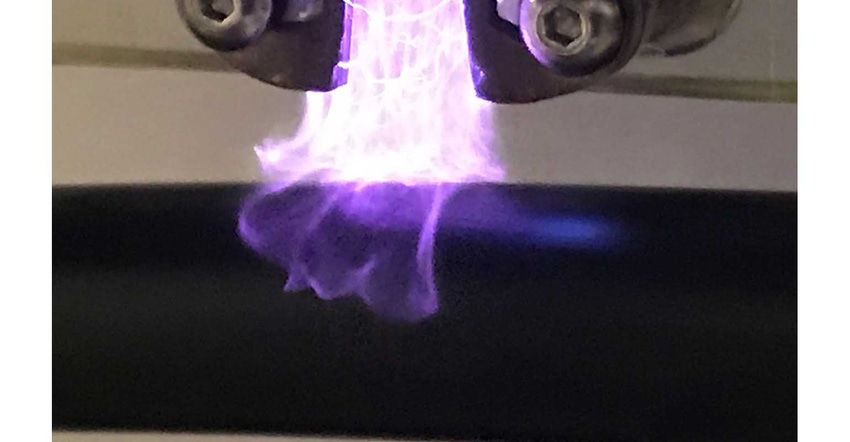The cold plasma process eliminates the need to use heat and chemicals to increase wettability and adhesion in substrates.
June 3, 2021

Advanced technology company APJeT reports that it is now applying the air plasma process to the surface treatment of plastic parts prior to marking or labelling. The cold plasma technique eliminates the need to use heat and chemicals to increase wettability and adhesion in substrates, while reducing safety risks, environmental impact, and material degradation, said the company.
The technology is compatible with many types of polymers, including high-density polyethylene (HDPE), PVC, polypropylene, and polyethylene.
The plasma is generated at atmospheric pressure and industrial line speeds using inexpensive gasses, explained APJeT. The plasma systems are engineered to cause powerful chemical surface reactions without altering the bulk strength or other desirable properties of the material. By changing the surface tension of a plastic substrate, the plasma process makes it hydrophilic, increasing wettability and promoting adhesion by allowing water-based inks and dyes to be more easily absorbed into and bonded with the substrate.
“When marking, printing, or labeling must be clearly legible, dimensionally accurate, and wear resistant, our cold plasma technology achieves maximum performance with minimal chemistry for HDPE manufacturers,” said APJeT CEO Bentley Park.
APJeT has recently partnered with a global manufacturer of infrastructure conduits for commercial-scale testing of its plasma technology.
APJeT has its origins at Los Alamos National Laboratory in Santa Fe, NM, where a team of scientists and engineers were the first to stabilize atmospheric plasma in a very dense, high-powered form for textile coatings. The company currently offers water and oil repellency, anti-microbial, wicking, and flame retardant finishes for a variety of markets.
APJeT recently introduced the Covidinator, a disinfection system that uses air plasma technology to disinfect circulated air and surfaces to reduce the spread of COVID-19 and the risk of future pandemics. The company anticipates widespread adoption of the technology by airlines, cruise ships, schools, offices, hotels, and supply chain industries
About the Author(s)
You May Also Like


